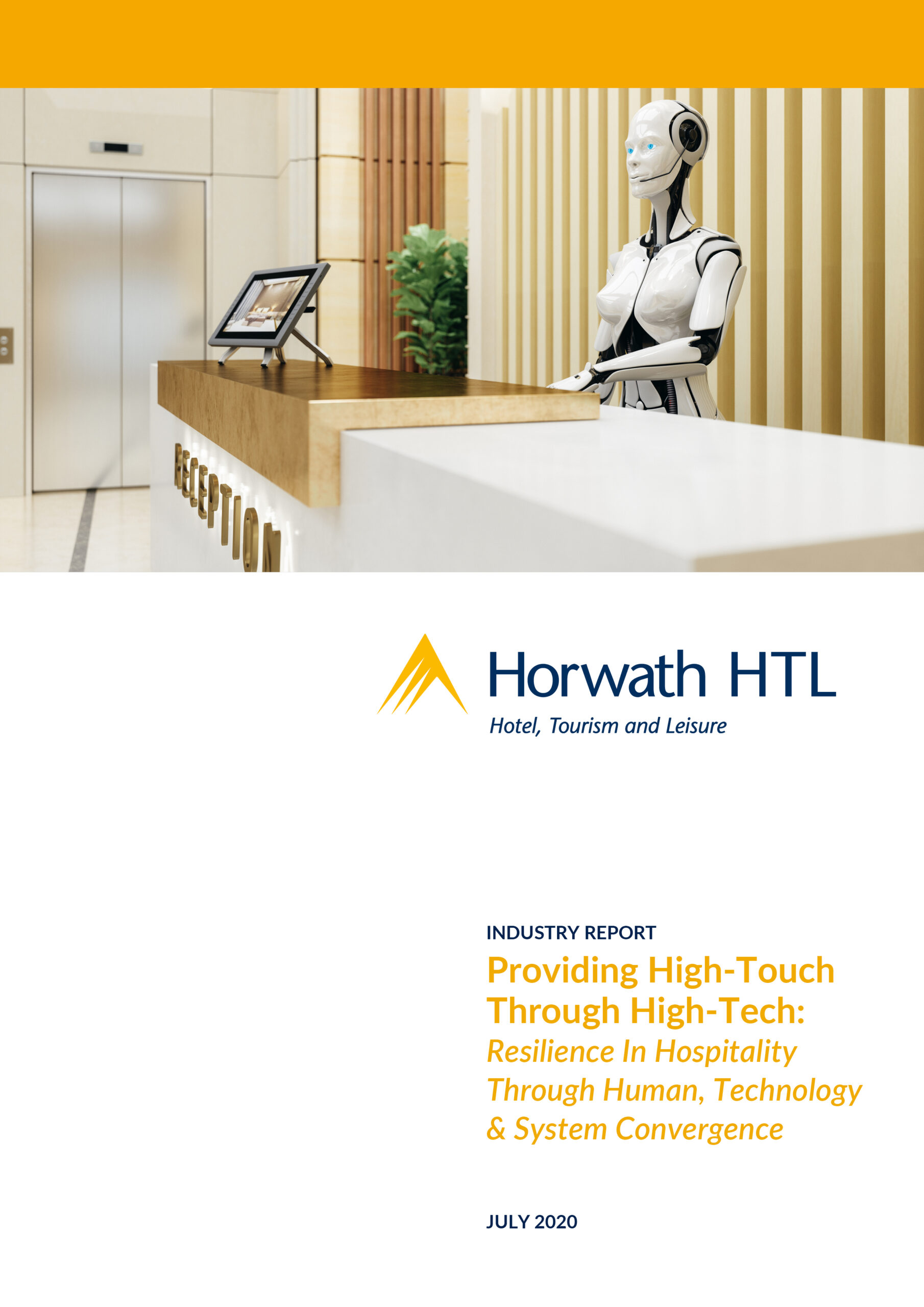
Report
Providing High-Touch through High-Tech
The COVID-19 pandemic has severely impacted the global hotel industry, drastically reducing occupancy levels and highlighting the need for resilience and adaptability.
The integration of technology in hotel operations presents a significant opportunity for the industry to overcome current challenges and emerge stronger. This report explores how technology can enhance guest experiences, improve operational efficiency, and provide a safer environment for both guests and staff.
The Impact of COVID-19
The pandemic led to significant declines in hotel occupancy worldwide. For instance, in Canada, occupancy rates plummeted from 58% in February 2020 to 14% in April 2020, recovering to 25% by June 2020. Similarly, the US saw rates drop from 62% to 25% during the same period. This situation underscores the urgent need for hotels to adapt to new realities and leverage technology to ensure safety and operational continuity.
Technological Innovations in Hospitality
Contactless Technology:
- Self-Check-In Kiosks: Hotels are implementing self-check-in kiosks similar to those used in airports. These kiosks allow guests to check-in, validate their ID, and receive room assignments without interacting with staff. Brands like Hilton, Linq Hotels, and Yotel have already adopted this technology.
- Digital Keys: Mobile-based room keys have become mainstream, allowing guests to use their smartphones to access their rooms. This technology, used by brands such as Hilton and Marriott, reduces the need for physical keys and enhances security.
Enhanced In-Room Technology:
- Smart Room Controls: Hotels are incorporating smart lighting, smart TVs, and personalized welcome screens to enhance guest comfort. Additionally, app-based services offer guided meditation, circadian lighting, and virtual assistants to improve the in-room experience.
Frictionless Restaurant and Bar Services:
- QR Code Menus and Payments: Restaurants within hotels are using QR codes for digital menus and contactless payments, minimizing physical contact. This technology is already in use at establishments like Kyo Restaurant at Hotel Place d’Armes in Montreal.
- Virtual Restaurants: Some hotels are adopting the virtual restaurant model, focusing solely on delivery services through apps like Uber Eats and DoorDash, reducing overhead costs and ensuring contactless dining.
Advanced Housekeeping Solutions:
- Germ-Zapping Robots: Robots like those developed by Xenex, which emit germicidal light to disinfect rooms, are being used in hotels such as the Westin Houston Medical Centre Hotel. These robots complement traditional housekeeping, ensuring thorough disinfection.
Automated Customer Service:
- Service Robots: Robots can perform simple tasks such as delivering room service or providing amenities, reducing human contact and increasing operational efficiency. Brands like Yotel have successfully integrated robots into their service model.
Operational and Marketing Adaptations
Sales and Marketing:
- Digital Engagement: Hotels are leveraging social media and digital platforms to maintain engagement with customers. This includes using Twitter, Facebook, Instagram, and Google My Business to communicate safety measures and maintain customer loyalty.
- Online Booking: The shift towards online booking platforms has accelerated, with more individual leisure travellers using mobile apps and online engines to make reservations.
Property Management Systems:
- Cloud-Based Solutions: Cloud computing solutions like Cloudbeds offer real-time data access and remote management capabilities, enhancing operational efficiency and flexibility for hotel staff.
Inventory and Staff Management:
- Digital Inventory Management: Mobile devices can be used to monitor inventory levels, submit purchase orders, and analyse sales data, streamlining operations.
- Scheduling Software: Automated scheduling software helps manage staff shifts, monitor sales, and control labour costs, replacing traditional paper-based methods.
Long-Term Benefits of High-Tech Integration
- Sustainability: Technology reduces the need for paper and plastic, contributing to environmental sustainability. For example, Hilton’s Digital Key technology has significantly reduced plastic waste.
- Guest and Employee Engagement: Enhanced digital communication allows hotels to build stronger relationships with guests and staff, improving satisfaction and loyalty.
- Cost Efficiency: While initial setup costs for new technologies may be high, the long-term benefits include reduced operational costs and increased efficiency.
The integration of technology in the hospitality industry is not just about adapting to the pandemic but also about ensuring long-term resilience and growth. By embracing high-tech solutions, hotels can provide safer, more efficient, and more engaging experiences for guests, paving the way for a more sustainable and profitable future.
Download the report
For detailed charts, graphs, and further analysis, download the full report here





